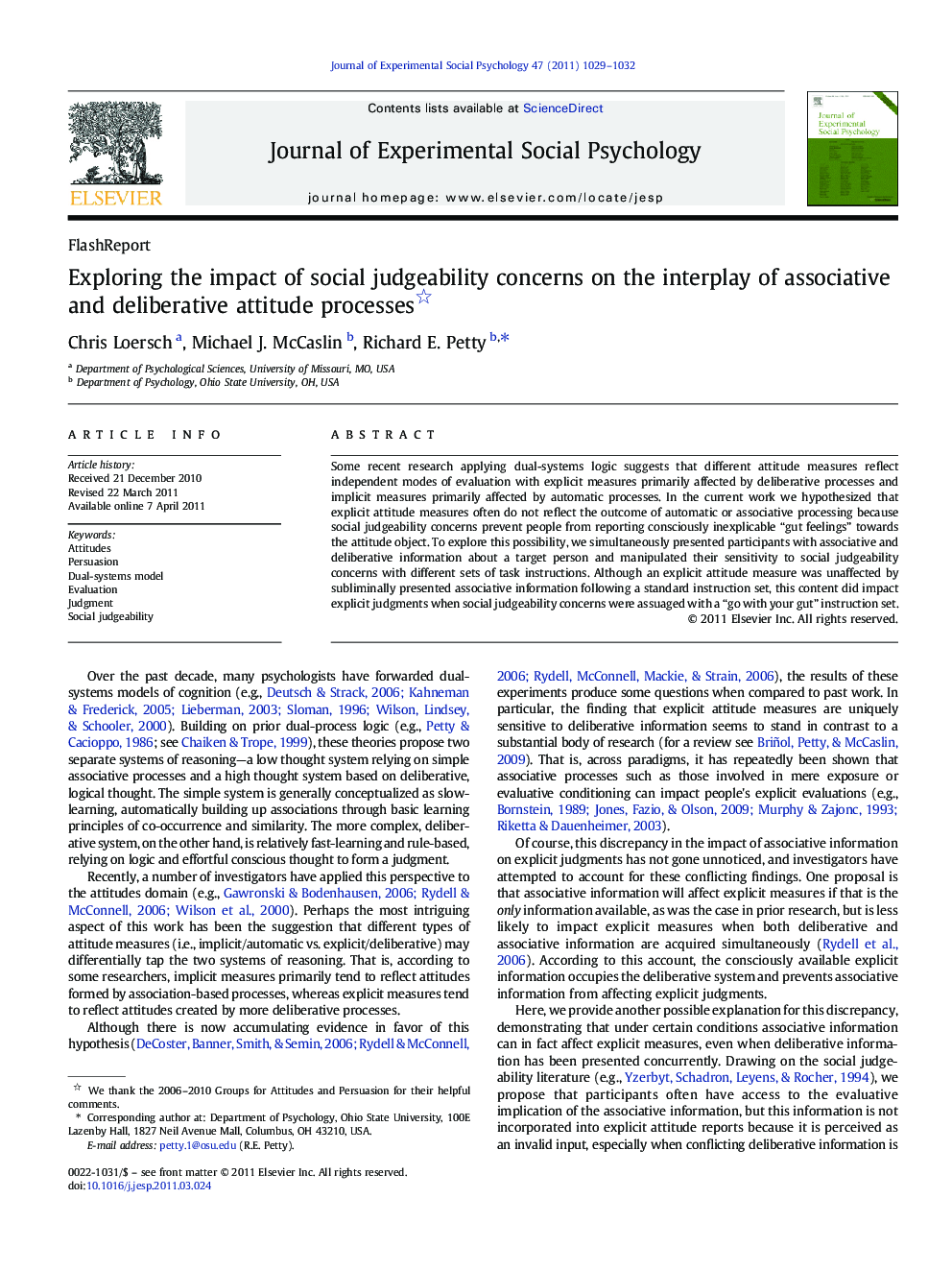| Article ID | Journal | Published Year | Pages | File Type |
|---|---|---|---|---|
| 948172 | Journal of Experimental Social Psychology | 2011 | 4 Pages |
Some recent research applying dual-systems logic suggests that different attitude measures reflect independent modes of evaluation with explicit measures primarily affected by deliberative processes and implicit measures primarily affected by automatic processes. In the current work we hypothesized that explicit attitude measures often do not reflect the outcome of automatic or associative processing because social judgeability concerns prevent people from reporting consciously inexplicable “gut feelings” towards the attitude object. To explore this possibility, we simultaneously presented participants with associative and deliberative information about a target person and manipulated their sensitivity to social judgeability concerns with different sets of task instructions. Although an explicit attitude measure was unaffected by subliminally presented associative information following a standard instruction set, this content did impact explicit judgments when social judgeability concerns were assuaged with a “go with your gut” instruction set.
► Associative information only sometimes impacts explicit attitude measures. ► The role of social judgeability concerns in moderating this effect was investigated. ► There was no effect of associative information under standard instructions. ► An explicit measure was affected when social judgeability concerns were assuaged. ► These findings help account for conflicting results from prior research.
